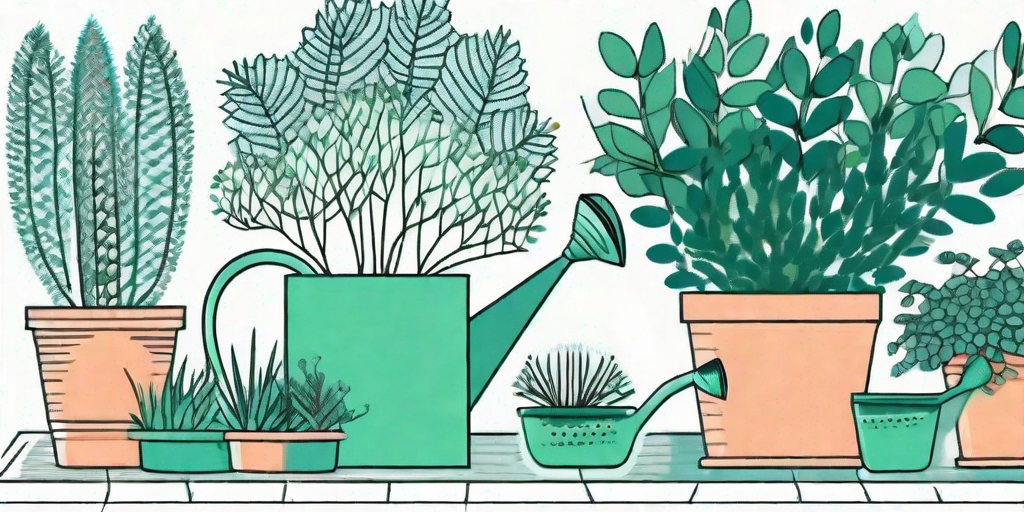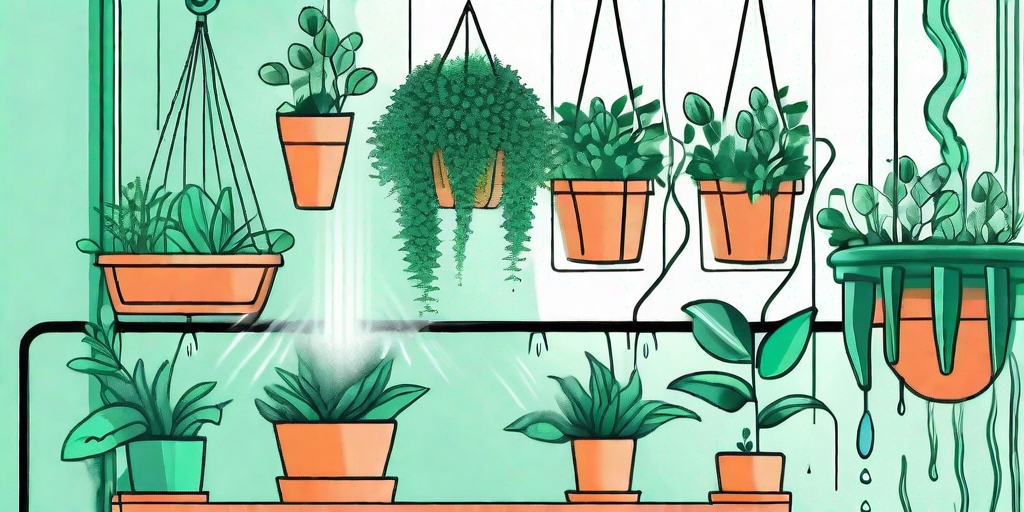
Welcome to the fascinating world of succulents, where the Mother of Thousands reigns supreme. This cheeky little plant, also known as Bryophyllum daigremontianum, is a unique succulent that's as prolific as it is captivating. With its intriguing growth habits and its ability to produce thousands of tiny plantlets, this plant is a joy to grow and care for. But don't be fooled by its charming appearance; this succulent requires a bit of know-how to keep it happy and thriving. So, buckle up, plant enthusiasts, as we delve into the captivating world of the Mother of Thousands.
The Intriguing Life of the Mother of Thousands
Before we dive into the nitty-gritty of caring for this succulent, let's take a moment to appreciate its unique characteristics. The Mother of Thousands, native to Madagascar, is a succulent plant that belongs to the Crassulaceae family. It's a fast-growing, evergreen perennial that can reach heights of up to 3 feet. But the real charm of this plant lies in its reproductive strategy.
Unlike most plants that rely on seeds for reproduction, the Mother of Thousands produces tiny plantlets along the edges of its leaves. These plantlets, complete with tiny roots, drop off and take root wherever they land, leading to the plant's nickname. It's a survival strategy that's as effective as it is charming, making this plant a real conversation starter.
Appearance and Growth Habits
The Mother of Thousands is a tall, upright plant with a single, unbranched stem. Its leaves are long and slender, with a beautiful blue-green hue. The edges of the leaves are adorned with tiny plantlets, giving the plant a distinctive, fringed appearance. The plant also produces bell-shaped, greyish-purple flowers in the winter, adding to its appeal.
As for its growth habits, this plant is a fast grower, especially during the warmer months. It prefers bright light and well-drained soil, and it's quite drought-tolerant, making it an excellent choice for those new to the world of succulents.
Caring for the Mother of Thousands
Now that we've covered the basics of this unique succulent, let's delve into the specifics of caring for it. While the Mother of Thousands is relatively easy to care for, it does have some specific requirements that need to be met to ensure it thrives.
From light requirements to watering schedules, here's everything you need to know to keep your Mother of Thousands happy and healthy.
Light Requirements
Like most succulents, the Mother of Thousands loves bright light. A sunny windowsill or a spot near a south-facing window is ideal. However, this plant can also tolerate some shade, making it a versatile choice for various indoor locations.
While it can tolerate direct sunlight, it's best to acclimate the plant slowly to prevent sunburn. Start by placing it in a spot with indirect light, gradually moving it to a brighter location over a few weeks.
Watering Schedule
When it comes to watering, the Mother of Thousands prefers a 'less is more' approach. This plant is drought-tolerant and prefers to dry out between waterings. A good rule of thumb is to water thoroughly, then wait until the top inch of soil is dry before watering again.
Overwatering can lead to root rot, a common issue with succulents. So, when in doubt, it's better to underwater than overwater. Remember, this plant is a survivor; it can handle a bit of neglect.
Propagation and Troubleshooting
One of the joys of growing the Mother of Thousands is its ease of propagation. With thousands of ready-to-root plantlets at your disposal, you'll have no trouble expanding your collection. However, like any plant, the Mother of Thousands can encounter a few issues. Let's tackle both topics head-on.
Propagation
Propagating the Mother of Thousands is as easy as pie. Simply pick a plantlet from the edge of a leaf and place it on top of a pot filled with well-draining succulent mix. Keep the soil slightly moist, and in a few weeks, you'll have a new plant.
Remember, the plantlets are ready to root, so there's no need for rooting hormone. Just provide them with a bit of care, and they'll do the rest.
Troubleshooting
Despite its hardy nature, the Mother of Thousands can encounter a few issues. Yellowing leaves can indicate overwatering, while a leggy appearance can suggest a lack of light. If your plant is looking a bit under the weather, try adjusting its care routine and see if it perks up.
Remember, this plant is a survivor. With a bit of tweaking, you can usually nurse it back to health.
Frequently Asked Questions
- Is the Mother of Thousands toxic?
Yes, the Mother of Thousands is toxic if ingested. Keep it out of reach of pets and children.
- Can the Mother of Thousands survive winter?
While this plant is not frost-tolerant, it can survive indoors during winter with proper care.
- Why are the leaves of my Mother of Thousands turning yellow?
Yellowing leaves can indicate overwatering. Try reducing your watering frequency and ensure the plant is in well-draining soil.
And there you have it, a comprehensive guide to growing and caring for the Mother of Thousands. With its unique growth habits and easy-care nature, this succulent is a joy to grow. So why not add one to your collection? You'll be a proud plant parent of thousands in no time!















